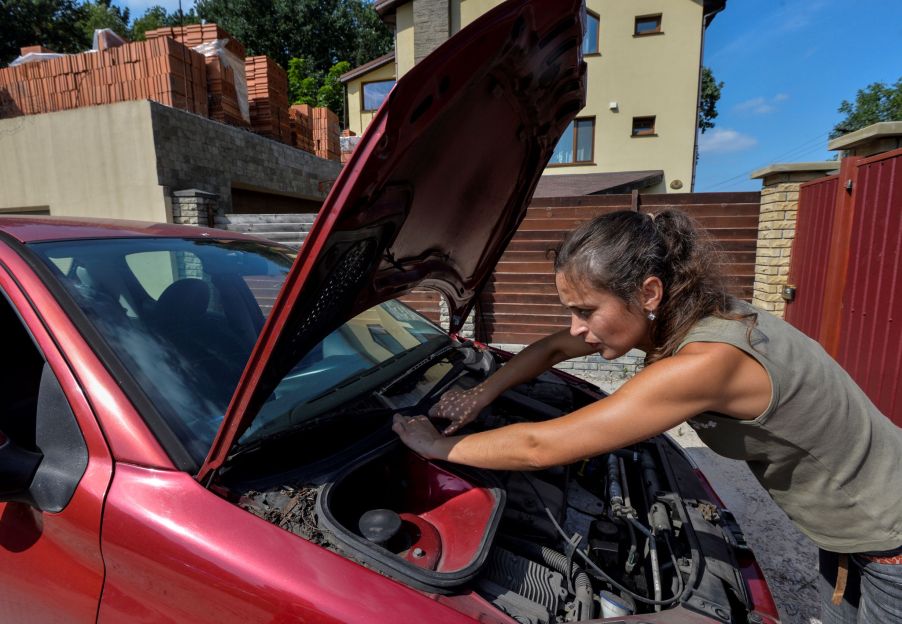
6 Common Causes Your Check Engine Light Could Be Coming On
A car’s engine is one of its most essential parts. Maintaining your car’s engine is vital if you want your vehicle to run for a long time. One way your vehicle will tell you it’s time to do some maintenance is when the check engine light turns on. There are a lot of reasons why that happens. Here’s a look at six common causes for why your check engine light turned on.
1. The gas cap is loose

According to iSeeCars, one of the most common reasons why the check engine light comes on is because the car’s gas cap is loose. This is a common cause for the check engine light turning on because of what the car is monitoring.
The car is monitoring its fuel system pressure at all times, and if the gas cap is loose, that pressure will drop, thus triggering the check engine light warning. This issue can also occur if the gas cap is old or defective. Overall, it’s a minor issue easily fixed by tightening the cap.
2. The car’s oxygen sensors are malfunctioning
According to iSeeCars, a malfunctioning oxygen sensors are another common cause for the check engine light turning on. In many modern cars, these sensors can be used to see if the car’s catalytic converter is doing its job and cleaning up the exhaust. If the sensor simply fails, gets clogged, or receives a strange reading, that can trigger the check engine light warning.
3. Other parts of the car’s emission system failed
Just like with a loose gas cap or malfunctioning oxygen sensors, if other parts of the car’s emission system fail, it can also trigger a check engine light warning. Making sure a vehicle meets fuel emission standards is a challenging process. There’s a lot of equipment involved.
According to iSeeCars, things such as the car’s filters, canisters, exhaust gas recirculation valves, positive crankcase ventilation valves, smog/air pumps, bypass valves, and more fail, then they can all trigger the check engine light.
4. The mass airflow sensor is failing
As iSeeCar reports, the car’s mass airflow sensor can be critical to a car’s performance and fuel economy, as it measures how much air is entering the engine and, thus, how much fuel is needed. If this part fails, then it can trigger the check engine light.
That said, this is a sensitive part so that it can be fixed by a simple and routine cleaning. Otherwise, it will need to be replaced.
5. The car’s catalytic converter is failing
As many drivers know, their car’s catalytic converter is one of its most valuable and essential parts, and if it’s failing, then the check engine light will turn on. However, a catalytic converter is unlikely to fail out of nowhere. As iSeeCars wrote, it’s usually caused by other issues drivers have ignored. As such, routine checks and maintenance are important to keep the car’s catalytic converter in top shape.
6. The engine is misfiring
Lastly, another common cause for the check engine light turning on is because the engine misfired. And like iSeeCars said, there are actually several common reasons why an engine misfired.
This can happen because of a defective ignition coil, a defective fuel injector, a vacuum leak, worn spark plugs, worn wires, or bad compression. If the root cause isn’t fixed, then your car will suffer from reduced performance, reduced fuel economy, or even a mechanical failure in the engine.



